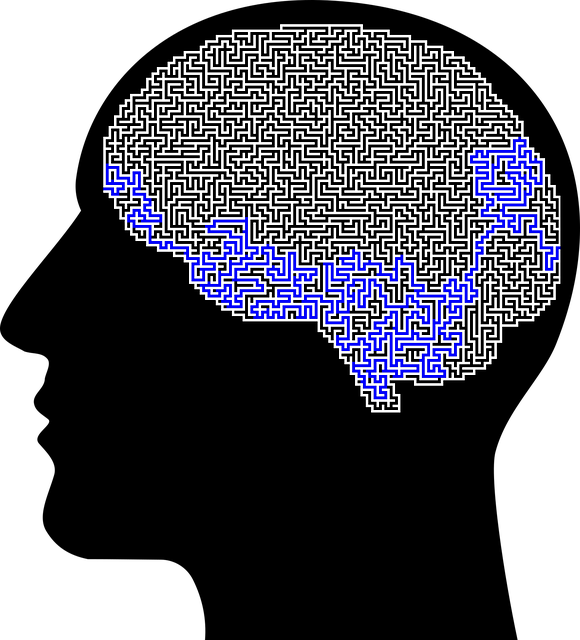Healthcare providers specializing in elder care face unique challenges leading to burnout, requiring proactive strategies. These include boosting confidence through education and support networks, promoting mental health awareness, and providing resources tailored to elders' phobias and anxieties, such as CBT. Mindfulness practices further enhance well-being and resilience. Robust support networks involving colleagues, supervisors, and family are crucial for prevention, with supervision including mental health education and access to therapy for specific fears. Integrating social skills training and mood management techniques strengthens these systems, empowering professionals to manage stress and maintain well-being.
Healthcare provider burnout is a growing concern among elder care professionals, impacting their well-being and patient outcomes. This article explores comprehensive strategies to prevent burnout, focusing on the unique challenges faced by those serving elders. We delve into understanding burnout’s subtle signs, examining cognitive behavioral therapy (CBT) as an effective tool against phobias and stress. Additionally, mindfulness practices, support systems, and building resilience are highlighted to create a sustainable work environment for healthcare workers.
- Understanding Burnout Among Healthcare Providers Serving Elders
- Identifying Signs of Burnout in Elder Care Professionals
- Cognitive Behavioral Therapy (CBT): A Potent Tool Against Phobias and Burnout
- Fostering Resiliency Through Mindfulness Practices for Healthcare Workers
- Building Support Systems: The Role of Colleagues, Supervisors, and Families
Understanding Burnout Among Healthcare Providers Serving Elders

Healthcare providers who specialize in serving elders face unique challenges that can contribute to burnout. The demands of caring for an aging population, often involving complex medical needs and emotional support, can be physically and emotionally draining. Many healthcare workers in this field experience high stress levels due to long work hours, heavy patient loads, and the constant need for specialized knowledge and skills. These factors create a perfect storm that can lead to symptoms of burnout, including exhaustion, detachment from patients, and reduced job satisfaction.
Understanding these specific risks is crucial for implementing effective prevention strategies. Boosting confidence through continued education and support networks can empower healthcare providers to better manage stress. Public awareness campaigns can play a vital role in addressing the unique challenges faced by those working with elders, promoting the importance of mental health and depression prevention. Additionally, providing resources for therapy tailored to elders’ phobias and anxieties can contribute to a healthier work environment, ensuring that these dedicated professionals remain resilient and committed to their crucial roles.
Identifying Signs of Burnout in Elder Care Professionals

Burnout among elder care professionals is a growing concern due to the demanding nature of their work. Recognizing the signs early is crucial for prevention. Common indicators include increased irritability or emotional exhaustion, a decline in job satisfaction, and detachment from patients. Healthcare providers might also exhibit physical symptoms like chronic fatigue or changes in sleep patterns. These signs often reflect a deeper issue, such as unaddressed phobias related to therapy for elders, which require professional support.
Emotional Intelligence plays a vital role in identifying these issues. Training in cultural competency and crisis intervention guidance can help professionals navigate complex emotional landscapes. By fostering an environment that prioritizes open dialogue and encourages seeking help, healthcare providers can mitigate burnout risks. This proactive approach ensures the well-being of both caregivers and the elders they serve.
Cognitive Behavioral Therapy (CBT): A Potent Tool Against Phobias and Burnout

Cognitive Behavioral Therapy (CBT) has emerged as a powerful tool not only for treating phobias among older adults but also for preventing and managing burnout in healthcare providers. This therapeutic approach focuses on identifying and modifying negative thought patterns and behaviors, which can significantly reduce symptoms of depression and enhance resilience building. By targeting specific cognitive distortions, CBT helps individuals develop inner strength and improve their coping mechanisms.
For healthcare professionals facing chronic stress, CBT offers a structured framework to navigate challenging situations. Through this therapy, providers can learn effective strategies to manage their emotions, set boundaries, and maintain work-life balance. By fostering inner strength development, CBT equips them with the tools needed to resist burnout and stay resilient in demanding environments, ultimately benefiting both their personal well-being and patient care.
Fostering Resiliency Through Mindfulness Practices for Healthcare Workers

In the demanding landscape of healthcare, where long hours and high-stress situations are commonplace, fostering resilience among workers is paramount to prevent burnout. Mindfulness practices emerge as a powerful tool in this endeavor, offering healthcare professionals a means to navigate the challenges of their roles with greater equanimity. By incorporating mindfulness into daily routines, providers can enhance their emotional well-being and develop a deeper sense of calm amidst the chaos. This not only benefits individual practitioners but also improves patient care by fostering more present and attentive interactions.
The integration of mindfulness extends beyond mere relaxation techniques; it encompasses training in conflict resolution skills, which are essential for navigating interpersonal challenges within healthcare settings. By learning effective communication strategies, healthcare workers can mitigate conflicts with colleagues, family members, or even patients’ loved ones, thereby reducing the emotional burden associated with these interactions. Moreover, risk management planning for mental health professionals is enhanced by mindfulness practices, enabling them to better recognize and address their own psychological needs while providing therapy for elders with phobias and other mental health conditions.
Building Support Systems: The Role of Colleagues, Supervisors, and Families

Healthcare providers often find themselves isolated in their struggles against burnout, but building strong support systems is a vital strategy for prevention. Colleagues can play a crucial role by fostering a culture of open communication and mutual aid, providing emotional support, and offering practical assistance with workload management. Regular peer support groups or mentoring programs within healthcare facilities can facilitate these connections.
Supervisors and family members also contribute significantly to burnout prevention. Supervisors should prioritize mental health education programs designed to enhance resilience, promote work-life balance, and provide access to therapy for elders phobias or other mental health concerns. Family members, in turn, can offer respite from professional demands, encouragement, and a different perspective on challenging situations. Integrating social skills training and mood management techniques into these support systems can further strengthen healthcare providers’ ability to cope with stress and maintain their well-being.
Burnout among healthcare providers caring for elders is a pressing issue, but with the right strategies, it can be mitigated. By understanding burnout’s signs and causes, as well as employing evidence-based tools like Cognitive Behavioral Therapy to address phobias and stress, professionals can enhance their resilience. Mindfulness practices and robust support systems from colleagues, supervisors, and families are also vital components of a comprehensive approach to preventing burnout. Implementing these strategies not only benefits individual healthcare workers but ensures high-quality care for the elderly population.













